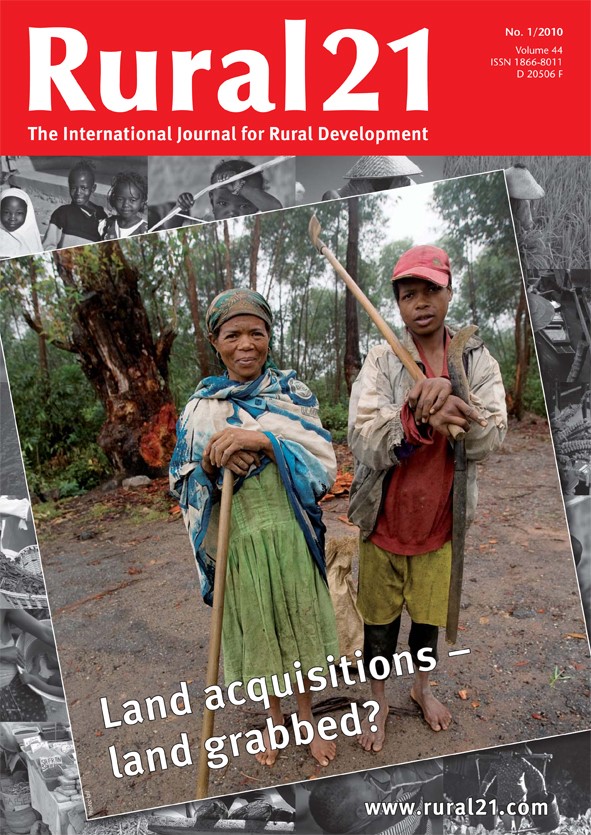A threat to global food security
As the world continues to experience a severe food crisis, with over one billion people going hungry, land grabbing – the purchase or lease of land by wealthy, food-insecure nations and private investors from mostly poor, developing nations in order to produce food crops for export – is gaining momentum. Some governments and international agencies believe that the in? ux of money and technology can turn land grabbing into a win–win situation for all involved. But is this really the case?




